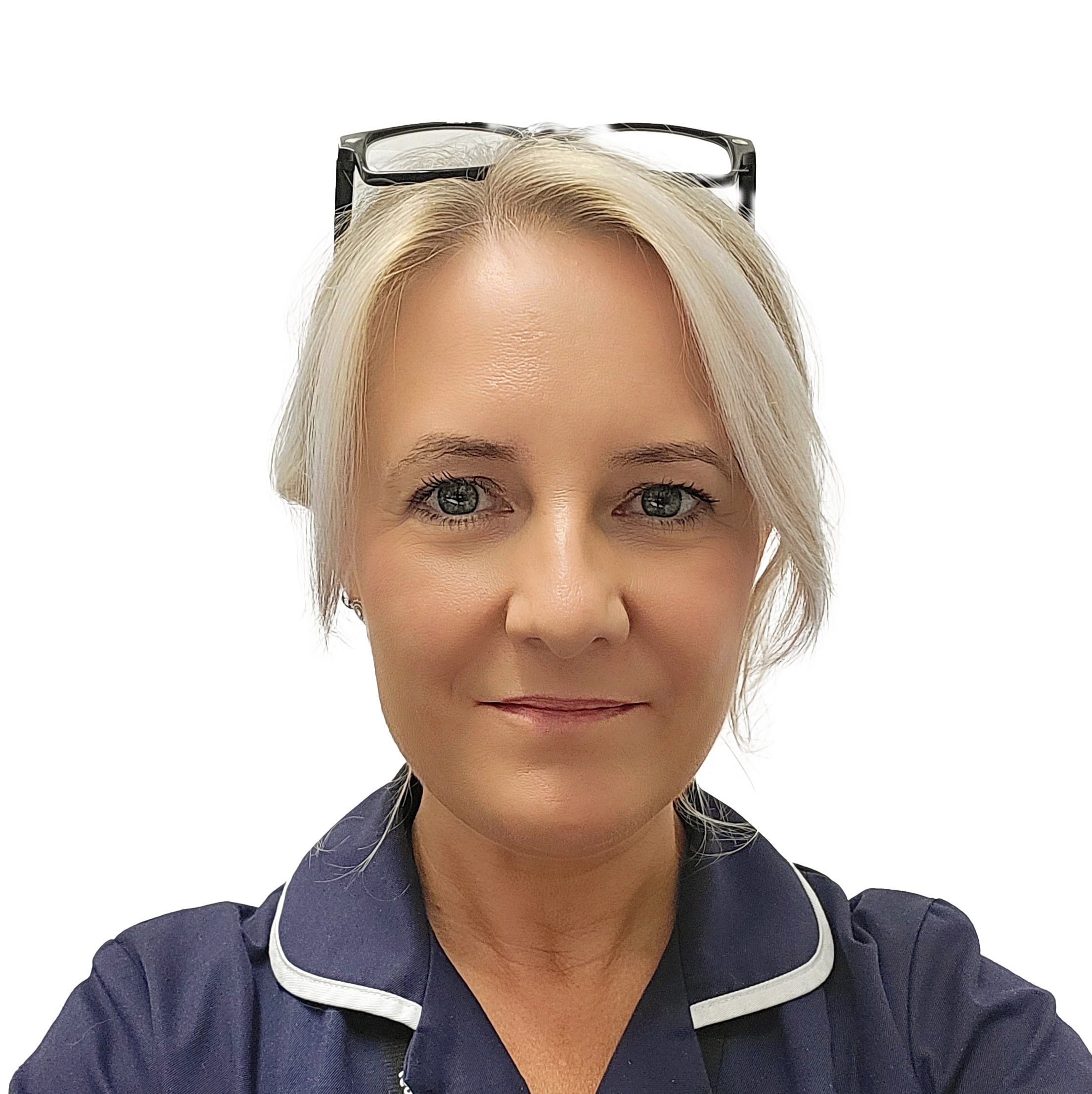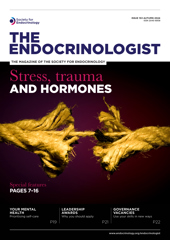Traumatic brain injury (TBI) and subarachnoid haemorrhage (SAH) are a significant cause of disability and mortality worldwide, often leading to long term physical, cognitive and emotional impairments. Despite advances in medical science, effective treatments for TBI and SAH remain limited. However, recent research suggests that growth hormone (GH) therapy could play a pivotal role in the recovery and rehabilitation of these patients when they have been found to have pituitary dysfunction. This article explores how GH replacement benefits patients with TBI and SAH, emphasising its impact on neuroprotection, neurodegeneration, cognitive function and overall quality of life.
NEUROPROTECTION AND NEUROREGENERATION
‘GH administration can increase the proliferation of neural stem cells and their differentiation into functional neurones.’
One of the primary benefits of GH therapy in cases of TBI and SAH is its role in neuroprotection and neuroregeneration. GH has been demonstrated to promote the survival of neurones and to reduce cell death following brain injury. The exact mechanism by which GH preserves neuronal integrity after injury is not fully understood.1 GH has been found to exert its neuroprotective effects through the stimulation of insulin-like growth factor-1 (IGF-1), which is crucial for neuronal survival and plasticity. Montivero et al. advise that IGF-1 helps in reducing inflammation and oxidative stress,2 both of which are significant contributors to neuronal damage after TBI and SAH.
Additionally, GH and IGF-1 enhance neurogenesis, particularly in the hippocampus, a region critical for memory and learning. Studies have demonstrated that GH administration can increase the proliferation of neural stem cells and their differentiation into functional neurones.3 This neuroregenerative capacity is vital for restoring lost cognitive functions and improving brain plasticity, thereby aiding recovery in patients with TBI and SAH.
ENHANCEMENT OF COGNITIVE FUNCTION
Cognitive impairments are common among patients with TBI and SAH, affecting memory, attention, executive function and processing speed. GH therapy has shown promise in mitigating these cognitive deficits. The hippocampus, highly involved in cognitive processes, is particularly sensitive to GH and IGF-1. By promoting hippocampal neurogenesis and synaptic plasticity, GH therapy can enhance learning and memory functions.
Clinical studies have indicated improvements in cognitive performance among patients with TBI and SAH who are receiving GH therapy, where they have been diagnosed with GH deficiency. These improvements include better memory recall, increased attention span and enhanced problem-solving abilities. Such cognitive enhancements are crucial for the reintegration of individuals with TBI and SAH into daily life and their ability to regain independence.
PHYSICAL REHABILITATION AND MOTOR FUNCTION
Motor function impairments, including weakness, co-ordination problems and spasticity, are prevalent in people with TBI and SAH. GH can facilitate physical rehabilitation by improving muscle strength and co-ordination. GH influences muscle metabolism, increasing muscle mass and reducing fat accumulation, which is essential for patients who often experience muscle atrophy due to immobility.
‘Ultimately, the benefits of GH therapy for patients with TBI and SAH culminate in an enhanced quality of life.’
Furthermore, GH has been associated with improved motor skills through its effects on the central nervous system. By promoting the repair of motor pathways and enhancing synaptic transmission, GH therapy can lead to better motor control and co-ordination. This improvement in physical abilities significantly contributes to the overall rehabilitation process and the patients’ quality of life.
EMOTIONAL AND PSYCHOLOGICAL BENEFITS
The emotional and psychological well-being of patients with TBI and SAH is often compromised, with many experiencing depression, anxiety and mood swings. GH therapy has been linked to improvements in mood and emotional stability.
Patients undergoing GH therapy have reported reduced symptoms of depression and anxiety, better emotional regulation, and an overall improvement in their sense of well-being. These psychological benefits are critical for the holistic recovery of individuals with TBI and SAH, as emotional health significantly impacts their motivation and engagement in rehabilitation programmes.
QUALITY OF LIFE
Ultimately, the benefits of GH therapy for patients with TBI and SAH culminate in an enhanced quality of life. By addressing the multifaceted impairments caused by TBI and SAH – cognitive, physical, and emotional – GH therapy supports a more comprehensive recovery. Patients experience better cognitive function, improved physical capabilities and greater emotional stability, enabling them to reintegrate into their communities and lead more fulfilling lives.
ACCESS TO TREATMENT
The information above demonstrates the immense impact of GH treatment on the well-being of patients after TBI/SAH. The issue appears to lie with identification of pituitary dysfunction and access to treatment. Numerous studies have supported the positive effects of GH replacement in this cohort of patients but, ultimately, how are these patients to be identified: who is responsible for screening?
Post-traumatic hypopituitarism occurs frequently and is under-diagnosed and under-treated. Lack of clear referral pathways mean that patients do not get referred and access to treatment varies according to local services and experience of local healthcare providers. Barriers to implementing a service for these patients tend to centre on lack of education, lack of clear referral pathways and lack of resources. A comprehensive study by Giritharan et al. concluded that although it is recommended that all SAH survivors be screened for endocrine dysfunction, this may not be always be feasible and has a substantial impact on resources.4
Combating these issues should be addressed collaboratively by the wider endocrine community to help evolve and develop future services and care for these patients. The implementation of clear referral pathways and embedding education into training programmes will help the plight of this patient group.
IN CONCLUSION
GH therapy offers substantial benefits for patients with TBI and SAH. Its neuroprotective and neuroregenerative properties, combined with its positive impact on cognitive function, physical rehabilitation and emotional well-being, make GH a promising treatment for enhancing the recovery and quality of life of those with TBI and SAH. As research continues to evolve, the integration of GH therapy into standard TBI and SAH treatment protocols holds the potential to transform the rehabilitation landscape for millions of individuals affected by this debilitating condition.
KATHRYN KINSELLA
Lead Endocrine Nurse, and Diabetes and Endocrine Outpatient Clinic Manager, Salford Royal Foundation Trust
REFERENCES
- Arce VM et al. 2013 Neuroscience Research https://doi.org/10.1016/j.neures.2013.03.014.
- Montivero AJ et al. 2021 Frontiers in Pharmacology https://doi.org/10.3389/fphar.2021.672392.
- Lyuh E et al. 2007 Growth Hormone & IGF Research https://doi.org/10.1016/j.ghir.2007.03.002.
- Giritharan S et al. 2017 Pituitary https://doi.org/10.1007/s11102-017-0825-7.






